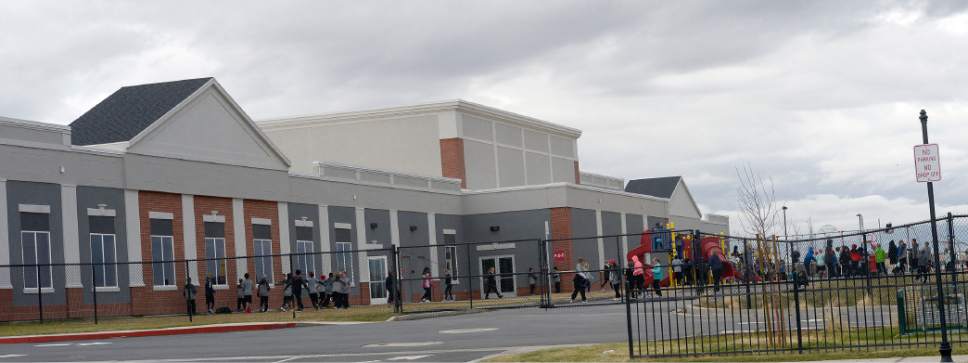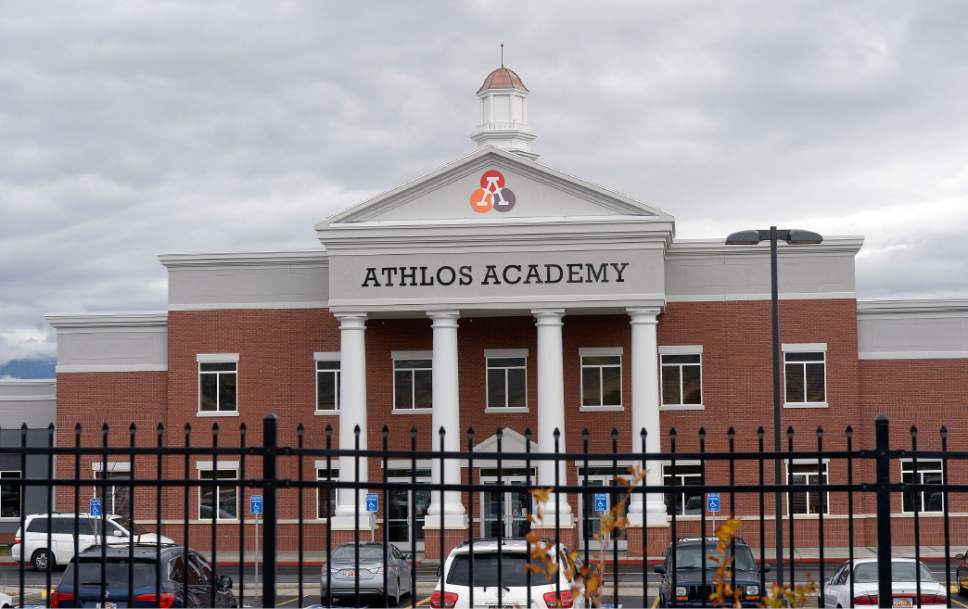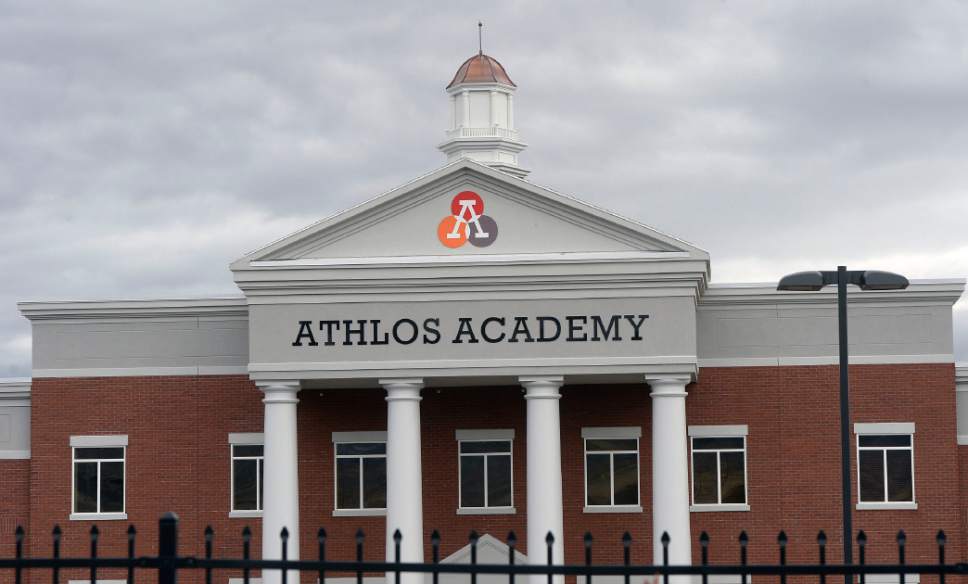This is an archived article that was published on sltrib.com in 2016, and information in the article may be outdated. It is provided only for personal research purposes and may not be reprinted.
When a Utah school district builds a new campus, administrators traditionally outsource construction after soliciting bids from private companies.
That process is outlined in Utah's Procurement Code, which requires public entities to solicit bids for services in an effort to drive down taxpayer cost through competition.
But the sequence is sometimes reversed at charter schools — which are individual school districts under Utah law — with private firms independently building a facility and then leasing it to a public occupant.
Those leases are exempt from procurement, meaning the negotiation and price-setting that occur before a lease is signed can be conducted in private.
Royce Van Tassell, executive director of the Utah Association of Public Charter Schools, said the lease exemption protects schools from predatory landlords.
There is a limited number of existing commercial space, he said, and requiring public entities to disclose their facility needs would allow someone to buy out an eligible building and increase tenant prices.
"Having the public process makes the likelihood of those predatory practices significantly higher," Van Tassell said. "They know you've got a finite set of options and are going to take advantage of that."
Van Tassell's comments came in response to accusations by outgoing Rep. Rich Cunningham, R-South Jordan, that a new charter school in Herriman violated the spirit of procurement law by leasing its location, without a bid process, from the same company that provides management services to the school.
That school, Athlos Academy of Utah, pays $112,083 each month to use a building owned by Athlos Academies, an Idaho-based education company.
"We're going to have to go back and change the law if they're going to play the games like that," Cunningham said last month.
Andrew Lavin, chairman of Athlos Academy's governing board, said there was no attempt to circumvent Utah law.
But deputy state superintendent Scott Jones said there is a degree of ambiguity within Utah's Procurement Code.
"We'd have to defer to the Legislature to tighten it up," he said. "There's some, I guess, gray in there."
Charter schools are held to the same requirements as school districts, Jones said. But while most Utah school districts are roughly 100 years old, new charter schools do not formally exist until shortly before they begin enrolling students.
"Before the school is actually chartered, the charter school isn't subject to procurement processes or rules," Jones said.
Charter schools submit financial information to the Utah Board of Education, including lease agreements and other facility expenses. But Jones said private landlords are not required to disclose the cost of construction, which affects the profit they derive from taxpayer-funded lease payments.
"What we don't have the ability to get is how much that developer paid to construct the building in the first place," he said.
And Jones said Utah law does not specify what would constitute an inappropriate relationship between a public charter school and a private charter management company.
Van Tassell said market forces are an effective check against abuses within the charter school system.
A developer with a reputation for excessive rent is unlikely to secure tenants, he said, and students are free to enroll elsewhere if a school spends too much on its lease and too little in the classroom.
"It's a relatively small world," he said, "but the competition is real, and it has the ability to really restrain bad actions."
New charters aren't able to access capital to the degree of existing school districts, he said, which leads to greater instances of facility leasing.
And while lease negotiations are exempt from procurement, Van Tassell emphasized that final agreements between a charter governing board and a landlord must be approved in a public meeting.
"The [school's] board is the one that is inevitably empowered and held accountable for the decisions that they make," he said.
But leases predate the opening of a school, meaning no students or their families would be affiliated with a charter at the time a board takes public action on a tenant contract — limiting the likelihood that taxpayers and patrons are in attendance when a board votes to adopt a lease.
In that scenario, Van Tassell said, the responsibility for oversight falls on the school's authorizer, which in most cases is the Utah State Charter Board, an advisory panel to the Utah Board of Education whose members are appointed by the governor.
"The accountability exists between them and their authorizer," he said.
In an email to The Salt Lake Tribune, Lavin said Athlos Academy intends to buy its own facility in the next three years.
He added that the Utah Board of Education and Utah State Charter Board conducted a thorough vetting of the Athlos Academy of Utah charter, including its lease and its contract with Athlos Academies.
"This kind of oversight ensures that Athlos Academy of Utah and other Utah charter schools act in good faith to both the letter and the spirit of the law," he said, "and in the best interest of Utah students and taxpayers."
Twitter: @bjaminwood







